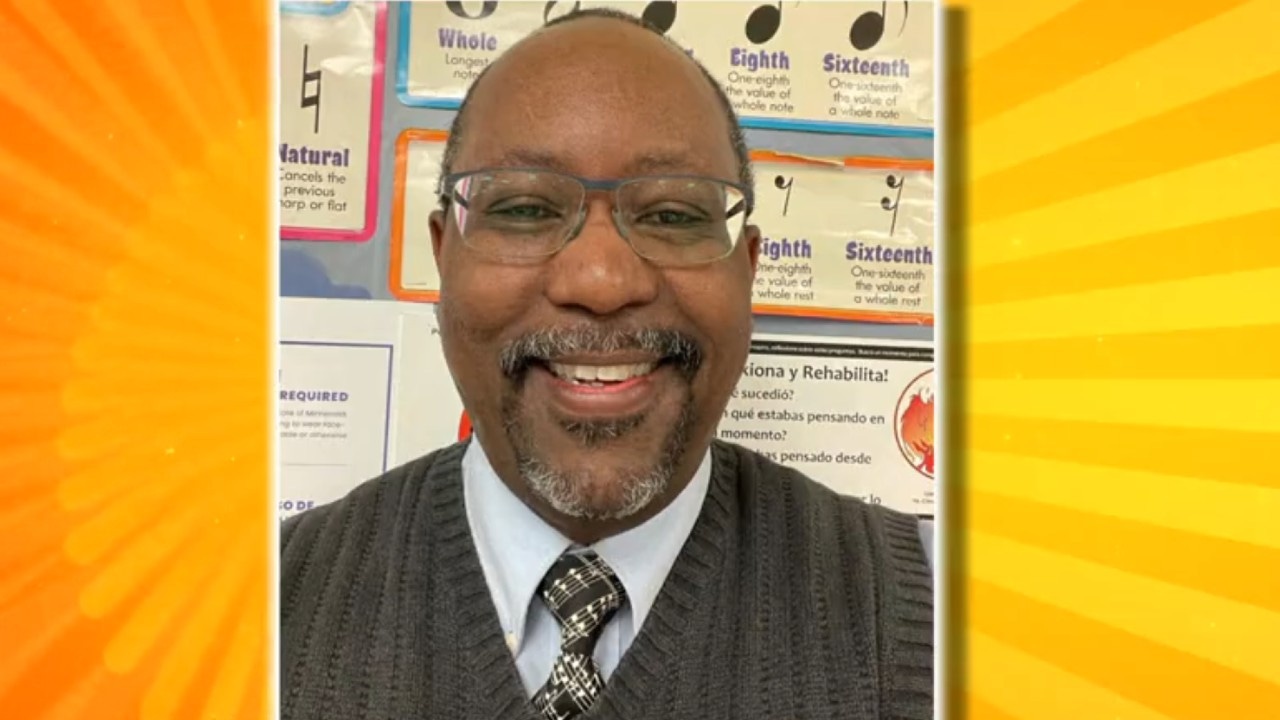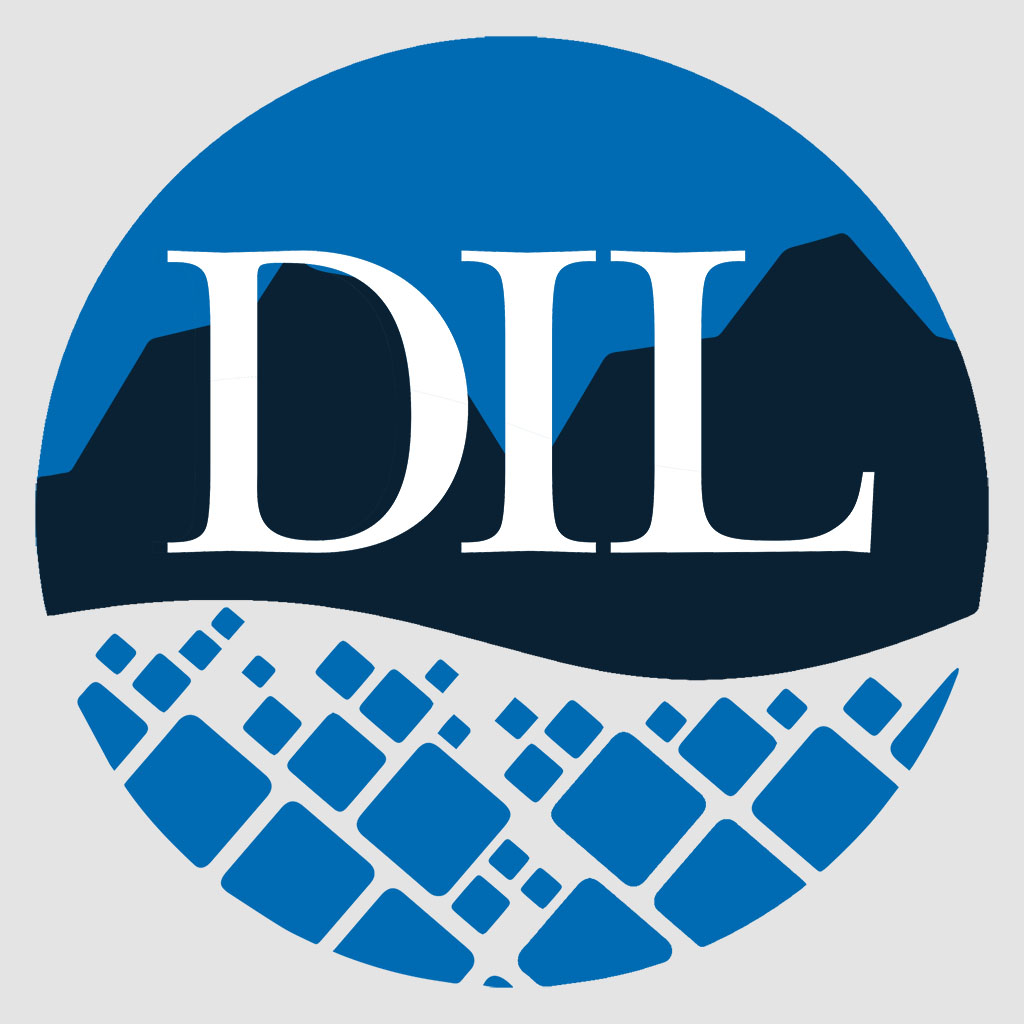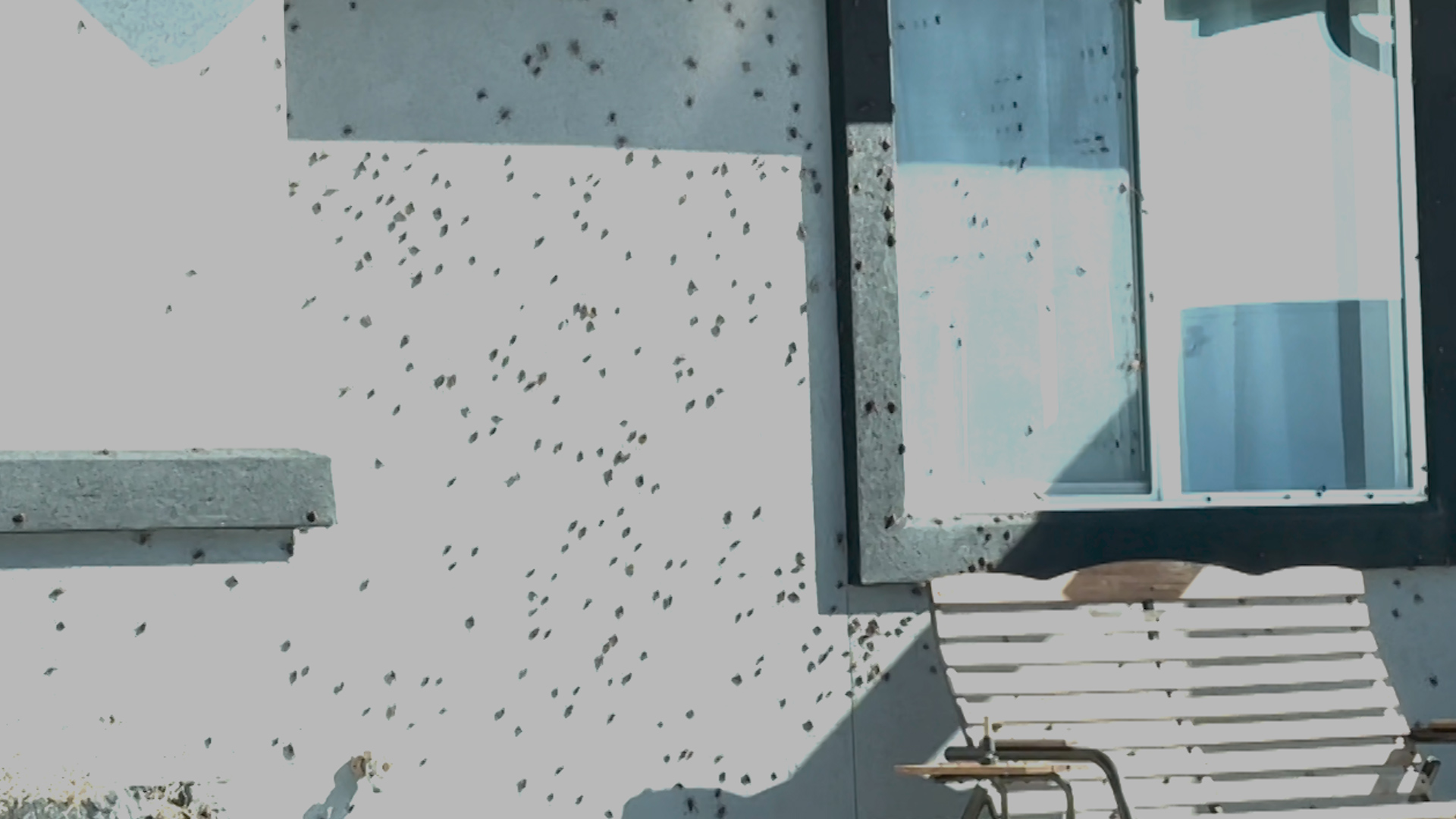North Carolina
North Carolina middle school takes bathroom mirrors away from 'TikTok-addicted' students
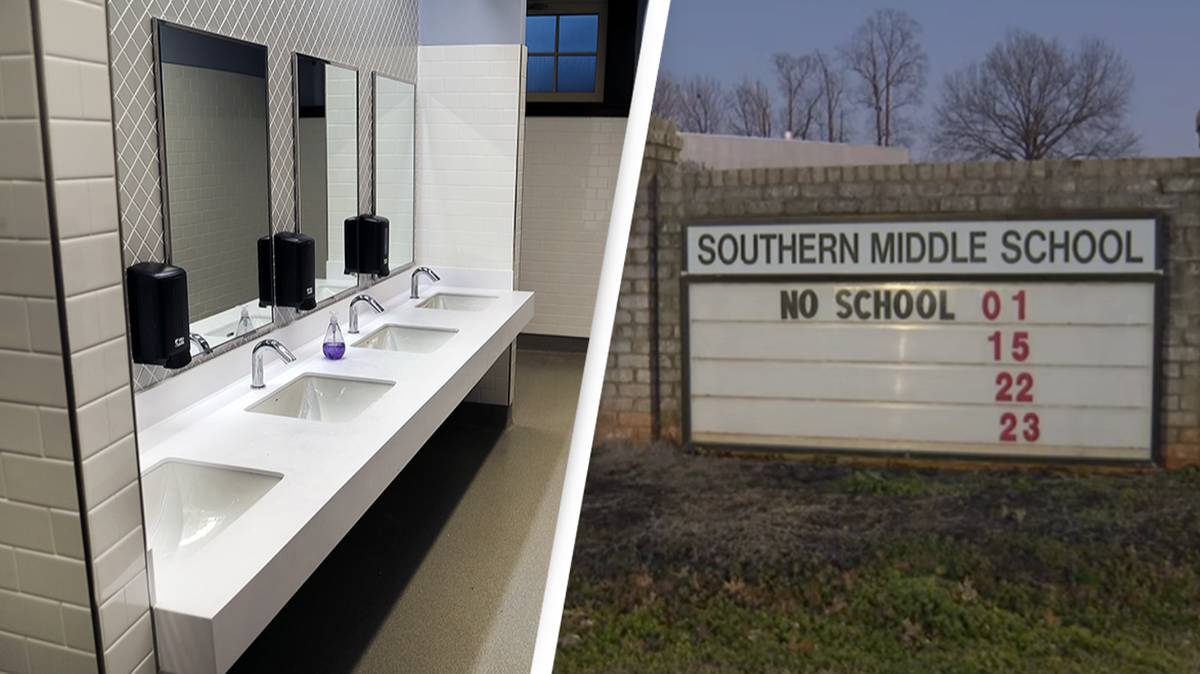
Are TikTok trends going too far? If they’re causing a disturbance in schools, then maybe.
We all love a little scroll every now and then, and some of us might even go as far as to upload a clip on the whim.
But it’s not like we’re doing it at school, or work… is it? Well, dear reader, apparently we are.
After middle schoolers in North Carolina couldn’t stop filming TikTok videos in the bathrooms, they’ve now had their mirror privileges revoked.
According to the Alamance-Burlington School System, Southern Alamance Middle School removed the restroom mirrors to deter students from leaving class to shoot clips.
They even detailed how some pupils cut class and visited the bathroom up to nine times a day.
Les Atkins, the public relations officer for the school system, told WFMY: “Students were going to the bathroom for long periods of time and making TikTok videos.”
Atkins went on to explain that the mirrors had been featured a number of times in the videos on the app and that even though it’s an odd punishment, it’s already working.
Atkins said: “Not as many visits to the bathroom, not staying as long and students are held accountable and then when there’s accountability you see a great difference.”
The school district also created a new system for digital passes which allows students to check in and out of class so that the school can track how long they are spending away from the classroom during the day.
According to the school, these ‘adjustments’ that have been made are just one step toward reaching the district’s goal of educating children about what it calls ‘digital citizenship.’
Atkins explained: “We’re trying to educate students: we all have cell phones now. We have to learn to use them. We have to learn when to put them down.”

This news comes just months after experts in the US tech space warned that Gen Z were growing addicted to TikTok and that this reliance was growing.
They argued that the continual scrolling and mindless watching associated with the app would force them into dependence.
The app has since been banned in Montana, which is now the first to do so as they claim to be saving their constituents from ‘Chinese Communist Party surveillance.’
And this is far from the first instance of TikTok being in hot water.

ClaimsHero, a company that says they don’t offer legal services but rather help people ‘communicate with lawyers and support [them] in managing their claim during the arbitration process’, is representing parents who are warning that the popular social media platform is dangerous.
The lawsuit has at least 5,000 parents involved as they want to bring more people on board to raise awareness about the dangers of the app.
The ClaimsHero website reads: “An Algorithm poisoning America’s Youth: TikTok is a weapon targeted at America’s youth. Its search algorithm turns the platform into a drug – featuring relentless violent, sexual, and even suicidal content that targets children as young as 12 years old.”

North Carolina
Why A Stretch of Interstate 85 is Backward in North Carolina
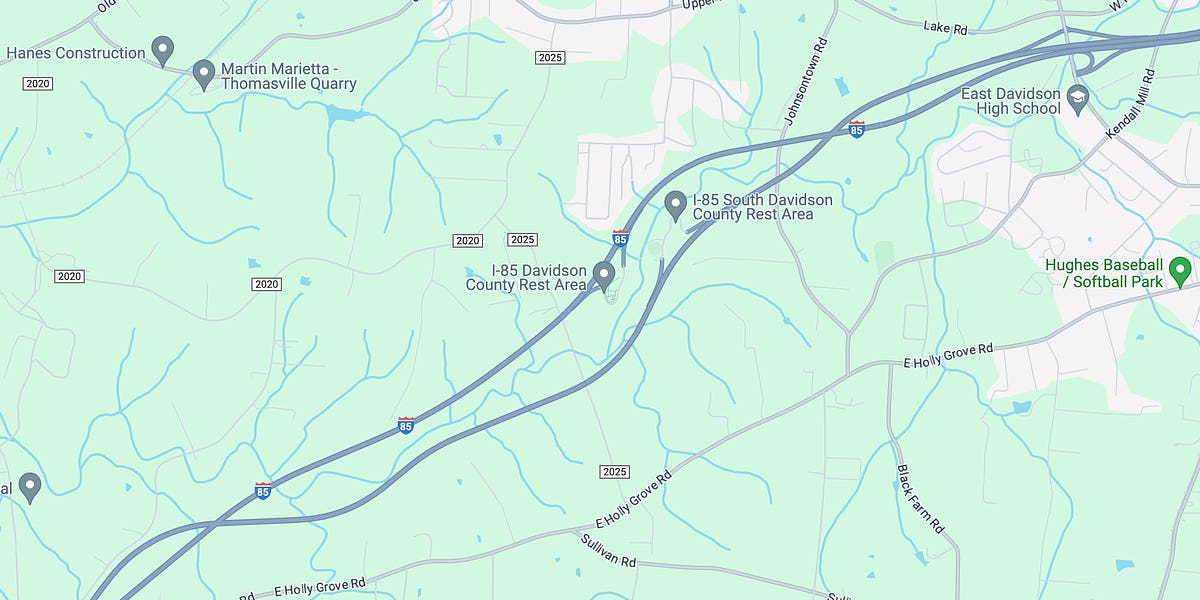
Some people say nothing good happens after midnight. Well, those people are wrong, because here is an interesting question from Fletch Brendan Good that came in at 4:41 a.m. Eastern time:
Several people have asked me about this! And yes, it’s true: Between Lexington and Thomasville, the lanes on Interstate 85 cross over each other. Which means, for three…
North Carolina
North Carolina Senate passes reactionary anti-masking bill
The passage of the North Carolina House Bill 237, also known as the “Unmasking Mobs and Criminals” Bill, in the state Senate on Wednesday brings the state one step closer to making it illegal to wear face masks in public, regardless of the threat posed by the COVID pandemic.
The legislation was voted on by a margin of 30 to 15 along party lines, with five abstentions. Revisions to the bill will mean the state House will vote on it again. But even if North Carolina Democratic Governor Roy Cooper vetoes the law, the Republican-majority state legislature will have sufficient votes to override him.
Although the bill leaves a number of exemptions in place, it specifically deleted the exemption, “Any person wearing a mask for the purpose of ensuring the physical health or safety of the wearer or others.” Meanwhile, masks can be worn as part of “traditional holiday costumes in season,” or if the person is “Engaged in trades and employment where a mask is worn for the purpose of ensuring the physical safety of the wearer, or because of the nature of the occupation, trade or profession.”
Public mask wearing has long been illegal in the state, but with many exemptions. The exemption for public health concerns was put into effect with the onset of the COVID pandemic. The measure to remove that exemption was introduced to the Senate Judiciary Committee by right-wing Republican Senator Buck Newton.
Newton told reporters that the action was being taken in part because of recent demonstrations by students on college campuses who were protesting the genocidal Israel onslaught against Palestinians, which has completely devastated the Gaza enclave and its more than 2 million inhabitants.
Newton’s claims that students are attempting to cover up their identities and that this represents some form of criminal enterprise are simply preposterous. “This isn’t just about protests,” Newton said. “I think it’s clear that people are seizing the opportunity to do things they’re not supposed to do, to break the law, or to intimidate people, and to keep their identities hidden, and it’s time for that to stop.”
Republican supporters of the legislation openly admit that the purpose of the measure is to help law enforcement crack down on protesters wearing masks, arguing that they were abusing pandemic practices to hide their identities.
In reality, students and protesters have, by all accounts, conducted themselves with considerable restraint. They have demonstrated exceptional courage in the face of attacks by the police and fascistic thugs. Police have carried out mass arrests of young people and faculty members who have come out in support. Many also take the ongoing pandemic as a serious reason to protect themselves and others from infection.
In that, they represent an important development of conscious social awakening in response to the actions of Biden and company in shutting down all public health measures in addition to the rampant US militarism. The students oppose the government’s and respective universities’ complicity and support for these war crimes, exercising their essential democratic rights laid down in the Constitution.
In fact, the assured passage of the law will only strengthen the hand of the state and will be seen as a landmark action that will be mirrored across the country. Challenges to the North Carolina bill will assuredly reach the Supreme Court and find legal expression for state repression while potentially placing the lives and well-being of people in danger. One can even assume that those wearing respirators or who cover their heads and faces for religious and cultural reasons will face hostility and repression from the local police and fascistic mobs.
Ohio’s Attorney General Dave Yost’s warnings made in a recent letter to the presidents of Ohio’s 14 universities underscores the gravity of these developments.
Mehring Books
COVID, Capitalism, and Class War: A Social and Political Chronology of the Pandemic
A compilation of the World Socialist Web Site‘s coverage of this global crisis, available in epub and print formats.
Yost wrote, “In our society, there are few more significant career-wreckers than a felony charge. I write to you today to inform your student bodies of an [1953] Ohio law that, in the context of some behavior during the recent pro-Palestinian protests, could have that effect.” That law states, “No person shall unite with two or more others to commit misdemeanor while wearing white caps, masks, or other disguise.” The breaking of the “anti-disguise” carries a fourth-degree felony charge and up to $5,000 fine and five years on community control, Yost reminded them. That the law has never been applied until now means it amounts to a state-sanctioned threat.
These anti-mask laws Yost references were enacted in the 1940s and 1950s by states in response to the activities of the Ku Klux Klan, whose members hid their identities to perpetrate violence and terror on their victims. However, as historians have noted, these laws weren’t intended to protect the victims, but were rather employed to curb the public displays of the Klan which were discrediting Democratic Party efforts to defend Jim Crow segregation. They remain in place in 18 states including North Carolina.
The COVID pandemic remains an ongoing public health concern. Despite the dismantling of all metrics that provide real-time information on the state of the pandemic, nearly 22,000 people died of COVID in the first four months of 2024. For the 2023/2024 influenza season, hospitalized COVID patients had a 35 percent higher rate of death than those admitted for the flu.

Loading Tweet …
Meanwhile, the Economist update on the impact of Long COVID estimates a prevalence of 2 to 7 percent or upwards of half a billion people worldwide with some level of ongoing impact from their infection.
For the US, the magazine estimates a loss of $152.6 billion in GDP in 2024 alone from COVID. For those who have left the workforce, 953.6 million hours of work were lost. Those with reduced hours account for another 366.3 million hours and those who continue to work with their condition cost more than 177 million hours. One needs only to extrapolate these figures to the rest of the globe to understand the magnitude of the COVID pandemic atop the nearly 30 million that needlessly died because of the greed of the ruling elites that have placed profits over life every step of the way.
The World Socialist Web Site is the voice of the working class and the leadership of the international socialist movement. We rely entirely on the support of our readers. Please donate today!
North Carolina
North Carolina grapples with growing nursing shortage
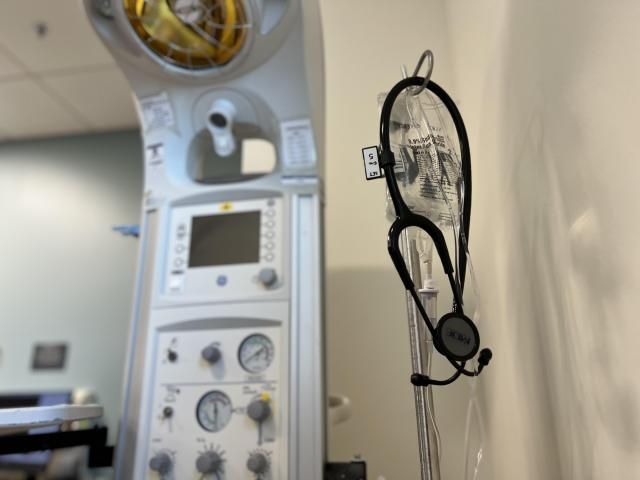
North Carolina faces an estimated nursing shortage of 12,500 workers by 2033.
One projection by the Cecil G. Sheps Center for Health Services Research at the University of North Carolina at Chapel Hill says long-term effects of the pandemic could cause that to jump to 18,600.
Braxton Nowell, UNC Health RN, has experienced the strain of a nursing shortage firsthand.
“One wonderful thing about medicine is people are living longer, healthier lives. However, we also have to have the nurses to take care of them,” he said.
The North Carolina native started working for UNC Health in January of 2020 as a nursing assistant.
“My grandmother is really my main reason for nursing,” Nowell explained. “I saw when she was in the hospital – she’s been hospitalized multiple times throughout my life – I saw the care she was given and how nurses advocated for her. I knew that’s what I wanted to do for people as well.”
He had only been on the job a mere three months before the healthcare system experienced an unprecedented shift in patient care due to a global pandemic.
“This unit was the COVID unit,” Nowell explained while showing WRAL News around the medicine progressive care unit at the Chapel Hill hospital.
Despite widespread burnout with healthcare as COVID cases climbed, Nowell continued his training. He graduated from UNC with a bachelor’s degree in nursing in 2022.
As UNC marks the recent graduation of 113 BSN students and another 70 graduate students from its school of nursing in Chapel Hill, Nowell hopes more students will follow suit to work in the Tar Heel State.
But, he says a lack of program space is a big issue.
“There’s not enough slots for people that want to be nurses. I think at UNC, they have 120 spots and I know they get more than 200 applications,” Nowell explained. “They always can’t give people who I know want to be nurses a slot.”
Kylie Goodman is in the midst of her first year in the accelerated bachelor of science nursing program through UNC.
“Originally I thought I wanted to be a dietitian but growing up I was always really passionate about healthcare,” said Goodman. “I’m very interested in the overall body as a whole and helping people who are sick more in that aspect.”
He and other nursing students take classes in Roper Hall with the School of Medicine while the university’s School of Nursing is demolished. A new building is expected to open in 2026. Officials say it will help the university reach its goal to increase nursing program capacity by 50%.
The UNC Health system currently has about 1,400 openings.
Goodman and dozens of others in the ABSN program are looking to one day fill some of those roles.
“I really do enjoy (pediatrics) but I also like adult,” Goodman shared. “I think trauma sounds interesting.”
When asked why she still wished to pursue a career in medicine in the wake of a global pandemic, Goodman said she just wanted to help people.
“Just to be able to come home from work today and say I know I made a difference in someone’s life,” she said. “Patients are in a stressful environment and they’re vulnerable. I want to be that person to help them in those situations.”
She added, being a student during such a difficult time makes her better equipped to handle a stressful career like nursing.
“I think the ability to adapt is really going to help me in this career and the ability to just take things as they come and adjust to them,” Goodman said.
US News and World Reports ranks Duke’s undergraduate nursing program the best in the country. UNC is ranked No. 4.
Terry McDonnell, senior vice president and chief nurse executive for Duke University Health System, said Duke’s current nurse vacancy rate “is less than 1%.” McDonnell said this is due to the use of “team-based models” used to provide care.
McDonnell added, “Duke nursing care benefits from partnership with the Watts School of Nursing and close collaboration with Duke University School of Nursing, Durham Tech and Wake Tech, as well as by undergoing efforts to reduce administrative burdens on nurses.”
-

 News1 week ago
News1 week agoSkeletal remains found almost 40 years ago identified as woman who disappeared in 1968
-

 Movie Reviews1 week ago
Movie Reviews1 week ago“Kingdom of the Planet of the Apes”: Disney's New Kingdom is Far From Magical (Movie Review)
-

 World1 week ago
World1 week agoIndia Lok Sabha election 2024 Phase 4: Who votes and what’s at stake?
-

 World1 week ago
World1 week agoUkraine’s military chief admits ‘difficult situation’ in Kharkiv region
-

 World1 week ago
World1 week agoCatalans vote in crucial regional election for the separatist movement
-

 Politics1 week ago
Politics1 week agoNorth Dakota gov, former presidential candidate Doug Burgum front and center at Trump New Jersey rally
-

 Movie Reviews1 week ago
Movie Reviews1 week agoAavesham Movie Review
-

 News1 week ago
News1 week agoTrump, Reciting Songs And Praising Cannibals, Draws Yawns And Raises Eyebrows



